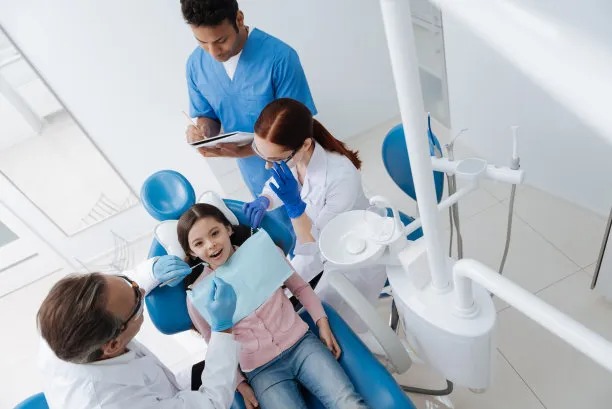Summary: Dental fillings are a common and necessary procedure to restore teeth affected by decay or damage. However, proper aftercare is vital to ensure optimal healing and oral health. This article outlines essential precautions and care tips to follow after receiving a dental filling. We will discuss how to manage sensitivity, maintain dental hygiene, ensure proper dietary choices, and schedule follow-up appointments. By following these guidelines, patients can aid their recovery and preserve their dental work effectively.
1. Managing Sensitivity and Discomfort

After receiving a dental filling, it is common to experience some sensitivity, especially to hot or cold temperatures. This sensitivity occurs as the tooth and surrounding gums heal. To manage this discomfort, consider using toothpaste specifically designed for sensitive teeth, which helps to reduce discomfort over time.
Additionally, over-the-counter pain relief medications, such as ibuprofen or acetaminophen, can be effective in alleviating any pain during the initial days after the procedure. However, its essential to follow the recommended dosage instructions to avoid any adverse effects.
It is also beneficial to refrain from exposing the affected area to extreme temperatures or hard foods in the immediate aftermath. A gentle approach to eating can contribute to a smoother recovery process, minimizing the risk of exacerbating any sensitivity.
2. Maintaining Proper Oral Hygiene
Maintaining oral hygiene is crucial after receiving a dental filling to prevent complications like infection or the development of further decay. To uphold good hygiene, continue brushing your teeth at least twice a day but be gentle around the filled area. It is advisable to use a soft-bristled toothbrush to avoid irritating the restored tooth or the surrounding gums.
Flossing is equally important; however, care must be taken so as not to pull too hard around the filling. If you find it difficult to maneuver floss around the area, consider using interdental brushes or dental picks that are less abrasive.
Rinsing with an antibacterial mouth rinse can also bolster oral hygiene efforts, ensuring that bacteria do not accumulate around the filling and lead to further dental issues. Consistent attention to your oral regimen can make a substantial difference in recovery.
3. Dietary Choices and Recommendations
Diet plays a significant role in the success of a dental filling. After the procedure, it is prudent to avoid hard, crunchy, or sticky foods for at least 24 hours. These foods can stress the newly placed filling and possibly lead to its dislodgment or damage.
Throughout the healing period, opting for softer foods such as yogurt, soup, and smoothies can minimize discomfort and aid in recovery. Furthermore, avoiding excessively hot or cold foods will also help in managing any sensitivity associated with the new filling.
It is also advisable to reduce consumption of sweets and sugary snacks, as these can promote tooth decay and undermine the integrity of the filling. Prioritizing a balanced diet that is rich in vitamins and minerals will support overall oral health, leading to longer-lasting dental restorations.
4. Scheduling Follow-Up Appointments
Following your dental filling, scheduling a follow-up appointment with your dentist is essential. This visit allows your dentist to assess the fillings fit and function, ensuring everything is healing correctly and that there are no complications.
During the follow-up, your dentist can provide tailored advice based on your healing progress and address any concerns you may have regarding sensitivity or discomfort. Regular check-ups are vital for sustaining oral health, and your dentist can catch any issues early on.
Moreover, adhering to a routine of regular dental visits—at least twice a year—will not only help maintain your filling but also monitor your overall dental health, preventing future problems before they arise.
Summary:
In conclusion, following essential precautions and care tips after receiving a dental filling is vital for ensuring optimal oral health. Patients should manage sensitivity, maintain oral hygiene, make mindful dietary choices, and schedule necessary follow-up appointments. By adhering to these guidelines, individuals can ensure the longevity of their dental work and promote a healthier smile.
This article is compiled by Vickong Dental and the content is for reference only.
Vickong Dental
Vickong Dental is a large medical group established in Hong Kong in 2008 by professors from well-known medical universities in Guangdong and Hong Kong, as well as medical doctors from key national '985' universities (including Master's supervisors and senior professors). The chain of branches brings together expert dentists with PhDs and Master's degrees from Hong Kong and Mainland China, committed to providing high-quality dental treatment.
"Vickong Dental Practices the University Motto of 'Healing and Serving Society,' with a Stable Operation for Sixteen Years. It Has Been honored with Hong Kong Enterprise Leaders's Choice,' and is a Global Trusted Implant Center for the Nobel Implant System. Recommended by Hong Kong Metro Broadcast and Guangdong Television, it Serves Customers from Over Thirty Countries and Regions, Gaining the Trust and Favor of Citizens from the Guangdong-Hong Kong-Macau Greater Bay Area and Surrounding Cities.

Thousands of customers' unanimous praise
The most recognized and highly recommended dental service by customers in the Guangdong-Hong Kong-Macau Greater Bay Area
We Ensure You Receive Detailed Care and Attention Here
Hong Kong standards, Shenzhen prices, Your Trusted English-speaking dentists

Vickong Dental Medical-Grade Instrument Disinfection Process
Vickong Dental Medical-Grade Instrument Disinfection Process

Vickong Dental Chain: A Warm and Comfortable Environment for Treatment






Appointment Hours

Q&A
Why choose Vickong Dental?
Vickong Dental practices the university motto 「Medicine to Benefit Society」, with each branch bringing together highly qualified dentists with doctoral and master’s degrees from Hong Kong and the Mainland, and has maintained seventeen years of steady operation。Recipient of 「2024 Hong Kong Enterprise Leaders Brand」, 「2025 Hong Kong Enterprise Leaders Brand」, a Nobel Biocare Global Trusted Implant Center, and a brand recommended by Metro Radio Hong Kong and Guangdong TV。
To date, we have served customers from more than thirty countries and regions,earning exceptionally high word-of-mouth recognition and trusted recommendations from residents across the Guangdong-Hong Kong-Macao Greater Bay Area and surrounding cities
We have eight major branches in Zhuhai、Shenzhen,and a consultation and service assurance center in Hong Kong,so you can book a free consultation at any time for any questions,which is very reassuring.
If I do not accept the quotation after the CT scan, will I be charged??
No! As long as the actual treatment has not started, you will not be charged any fees.
Will there be any additional charges during the treatment process?
No, there won’t be any additional charges. Before treatment begins, we will clearly explain the treatment plan and its corresponding fees. Only after the patient agrees and signs the consent form will we proceed with the dental service.
Can I pay in Hong Kong dollars?
Yes. Vickong Dental accepts payment in Hong Kong dollars. The amount will be converted based on the exchange rate of the day, and the applicable rate will be clearly communicated to you in advance.
Can I reschedule my appointment at any time?
Yes. Please contact us via **WeChat** or **WhatsApp** as early as possible, providing your original appointment time and details, along with your preferred new date and time slot for rescheduling.













